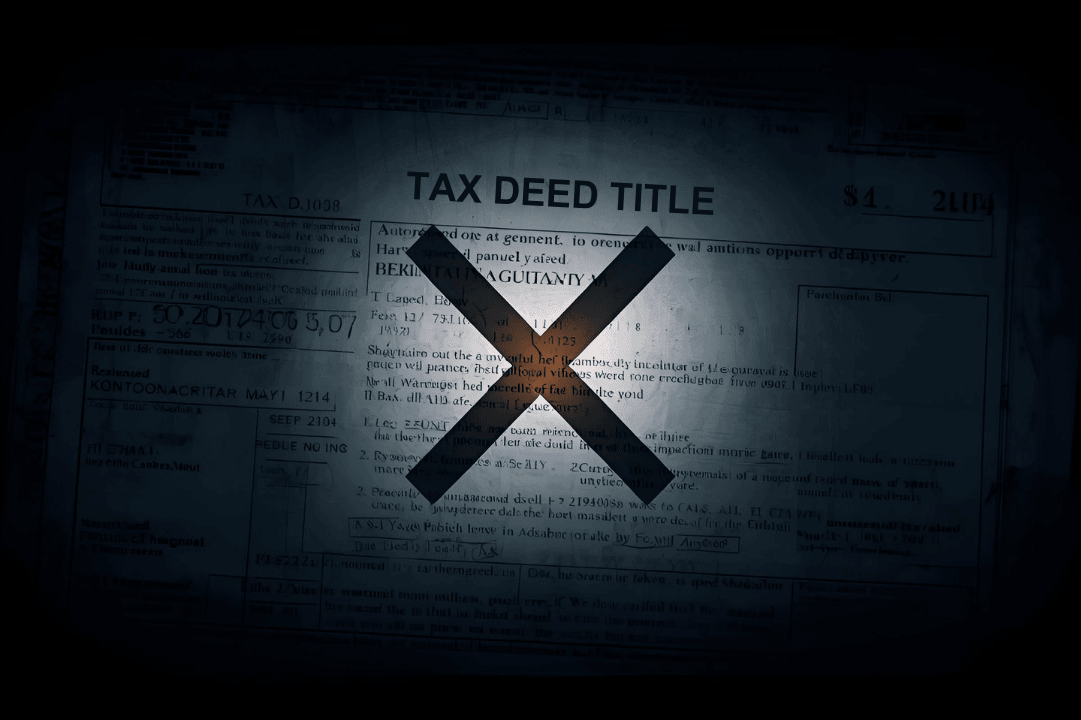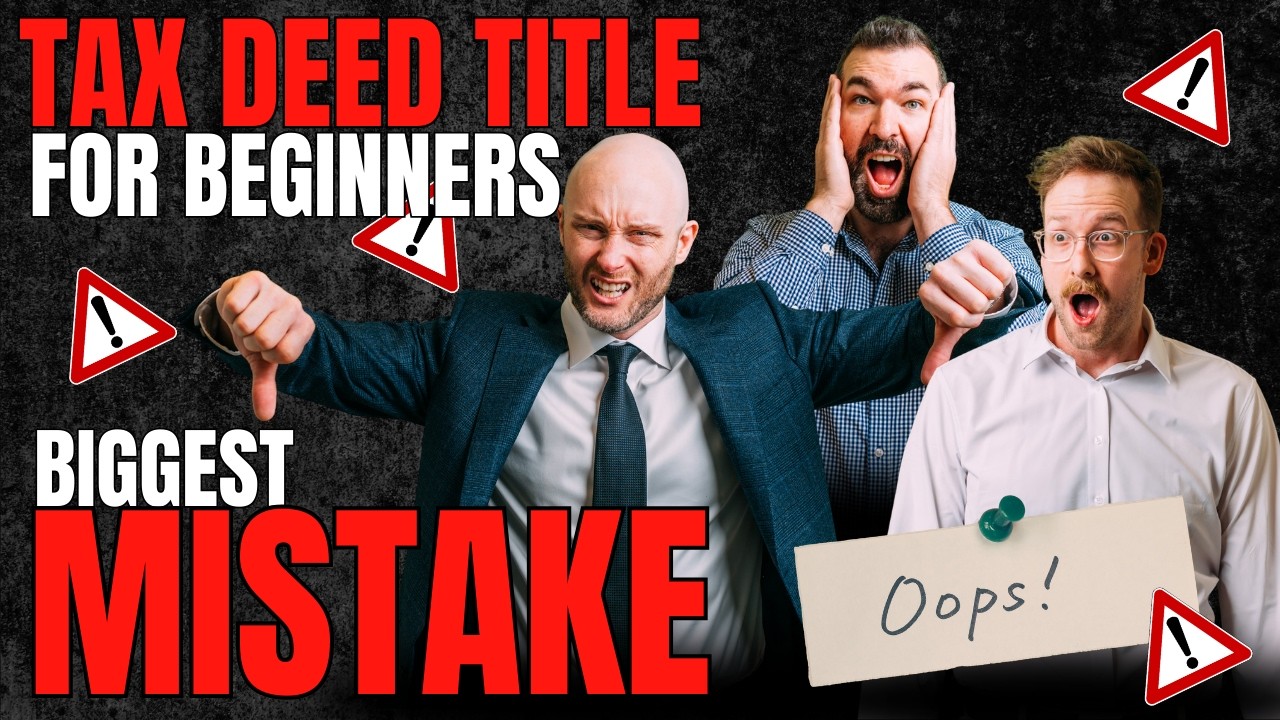Last Updated on October 23, 2025
In this video, we showed how to avoid the tax deed title mistake in tax deed investing. We used a real vacant lot with a low starting bid to illustrate why a bargain can hide serious problems.
Why are titles cloudy after a tax deed sale?
When owners stop paying property taxes, counties can auction the property in a tax deed sale. The winning bidder gains the deed and pays far less than market value, but many municipal charges, for trash, sewer or code enforcement, remain. Because the sale doesn’t clear every lien, the title is clouded and difficult to insure, and you must resolve those issues before most lenders will finance the property.

Mistakes Beginners Make and How to Avoid Them
1. Skipping due diligence
A tax‑deed property may look good on paper, but you need to see it and research it. Drive by or have someone visit, check recent sales and estimate repair costs. In our example, the lot looked perfect until a deeper search revealed a long history of code violations and liens that made it a bad deal.
2. Overpaying at the tax deed auction
Tax‑deed houses are sold as is. Overpaying leaves no room for repairs or profit. Decide your maximum bid based on the property’s value minus expected costs and stick to it during the auction.
3. Neglecting the tax deed title search
After confirming the value, search the title. Use the county’s online records (search the county name plus “deed search”), gather the owner’s name and legal description, and review all documents listed for that property.
Look for liens, code violations and demolition notices. In our video, the low‑priced lot had numerous municipal liens that would not be wiped out. When liens exist, subtract their total from your maximum bid or walk away.
4. Ignoring municipal liens
Municipal liens survive many tax‑deed sales. Their treatment varies by county, so assume they will remain until you learn otherwise. Find out what they are and subtract them from what you are willing to pay.
5. Buying a tax deed from unreliable sellers
Counties usually transfer tax deeds by quitclaim deed, which offers no warranty of a clear title. Buying from private sellers who flip tax deeds can be risky because they may hide problems. Purchase directly from the county and do your own research.
6. Overlooking auction rules and exit planning
Each county has different fees, redemption periods and rules. Read them before you bid so you aren’t surprised later. Decide whether you will flip, rent or hold the property and verify that local prices support your plan.
7. Recording the deed incorrectly
If you use an LLC or corporation, list the full legal name, entity type and state of incorporation on the deed. Misspellings or missing suffixes create a cloud on the title. Double‑check your paperwork before submitting it.
8. Believing you have a clean tax deed title
Winning the auction doesn’t mean the title is insurable. Title insurers treat tax‑deed titles as risky. To clear the title, you may need to hold the property for a statutory period, file a quiet title lawsuit or hire a title‑certification service. Quiet title actions can be slow and expensive, but they provide legal certainty. Certification services can be quicker, but still require proof that the county followed the law.
Frequently Asked Questions
It is an auction where a county sells property because the owner failed to pay taxes.
Most mortgages are wiped out, but municipal liens often survive.
Use the county’s deed search site, find the owner’s name and legal description, and review all records for liens and violations. Subtract any unpaid liens from your maximum bid.
Subtract their value from what you plan to bid. If the liens exceed the potential profit, move on to another property.
No. You may need to wait, file a quiet title suit or use a certification service before you can get title insurance.
Conclusion
Tax deed investing opens the door to discounted real estate, but it is not a shortcut to easy money. The property we examined in the video looked like a great deal until a title search revealed numerous liens.
By driving the property, researching its value, performing your own title search, understanding local rules and subtracting liens from your bid, you can avoid the mistakes that catch many beginners. For more detail, watch the full video and explore our free resource: ABCS Of Tax Lien & Deed Investing






